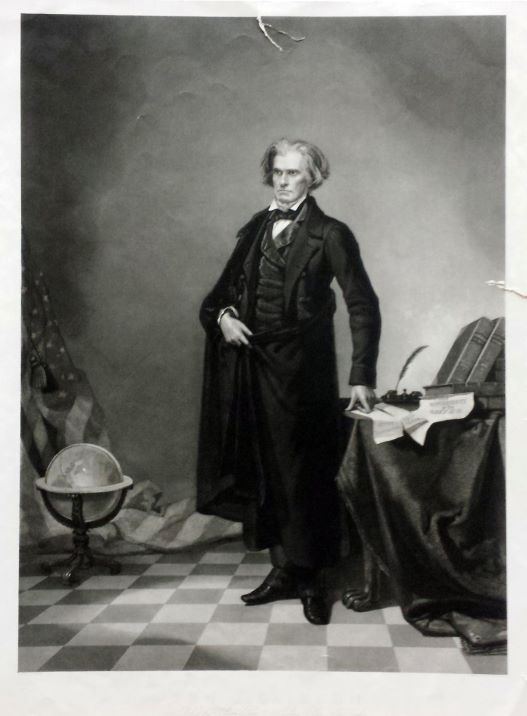Liberty Matters
Should we try to fix political parties…or improve them?

My thanks again to Liberty Fund for inviting me to participate in this illuminating conversation. I greatly appreciated Professor Whittington’s essay, as well as the responses from professors Read and Grove.
Reading through our conversation once more, I am struck by a recurring theme — the worry that politics is no longer capable of producing results consistent with justice and the general welfare. This concern undoubtedly was a primary motive for Calhoun in the 1820s and 30s, and I noticed all of the respondents in this discussion shared a similar anxiety. Keith notes Calhoun’s worry “that party loyalties would overwhelm constitutional loyalties;” James points to the tendency “in which democratic politics can degenerate into the selfish pursuit of narrowly partisan or sectional interests; John indicates the tendency of parties to “use such corrupt tactics.”
I think it is fair to say that, while all of us have different views of Calhoun, we would agree that party politics today has become worryingly dysfunctional — the modus operandi of party conflict in 2021 seems not to be promoting a vision of the collective interest, but rather a celebration of the defeat of reviled opponents. To “own the libs” or “own the cons,” as they say on Twitter.
This, of course, opens up a whole new line of consideration, but I thought it might be worth sharing an insight from Martin Van Buren — Calhoun’s great bête noire during the Jacksonian era. Whereas Calhoun thought parties were a problem with politics, Van Buren believed them to be integral to it. The question, to Van Buren’s mind, was whether the parties were well designed. In his Autobiography, Van Buren wrote:
Political parties are inseparable from free government … Doubtless excesses frequently attend them and produce many evils, but not so many as are prevented by the maintenance of their organization and vigilance. The disposition to abuse power, so deeply planted in the human heart, can by no other means be more effectually checked; and it has always therefore struck me as more honorable and more in harmony with the character of our People and of our Institutions to deal with the subject of Political Parties in a sincerer and wiser spirit — to recognize their necessity, to give them the credit they deserve, and to devote ourselves to improve and to elevate the principles and objects of our own and to support it ingenuously and faithfully.[1]
Van Buren anticipated the party theory literature of the mid-20th century, particularly E.E. Schattschneider’s argument that the health of a democracy can be estimated by the health of its parties.
The impulse behind Calhoun’s political theory was outrage to the Tariff of 1828, which was a product of excessive politicking for the presidency (and to which, it must be admitted, Van Buren violated his own protestations cited above). The Jackson men turned tariff policy into an electoral tool to get their candidate elected, with disastrous results for the South.
That must sound more than a little familiar to contemporary ears. We today likewise have political parties that seem more intent on victory than good governance, or even civilized discourse. It is fair therefore for us to ask whether and how our parties are in need of reform. Party politics is an inescapable feature of democratic life, but when the parties are dysfunctional, that life can seem intolerable. So, should we fix our parties? And if so, how so? Calhoun thought a virtue of the concurrent majority would be to check parties. What if, rather than checking parties, we endeavor to improve them?
Endnotes
[1] Martin Van Buren, “Autobiography,” in Annual Report of the American Historical Association for the Year 1918, Vol. 2, ed. John C. Fitzpatrick (Washington, D.C.: Government Printing Office, 1920), 125.
Copyright and Fair Use Statement
“Liberty Matters” is the copyright of Liberty Fund, Inc. This material is put on line to further the educational goals of Liberty Fund, Inc. These essays and responses may be quoted and otherwise used under “fair use” provisions for educational and academic purposes. To reprint these essays in course booklets requires the prior permission of Liberty Fund, Inc. Please contact oll@libertyfund.org if you have any questions.